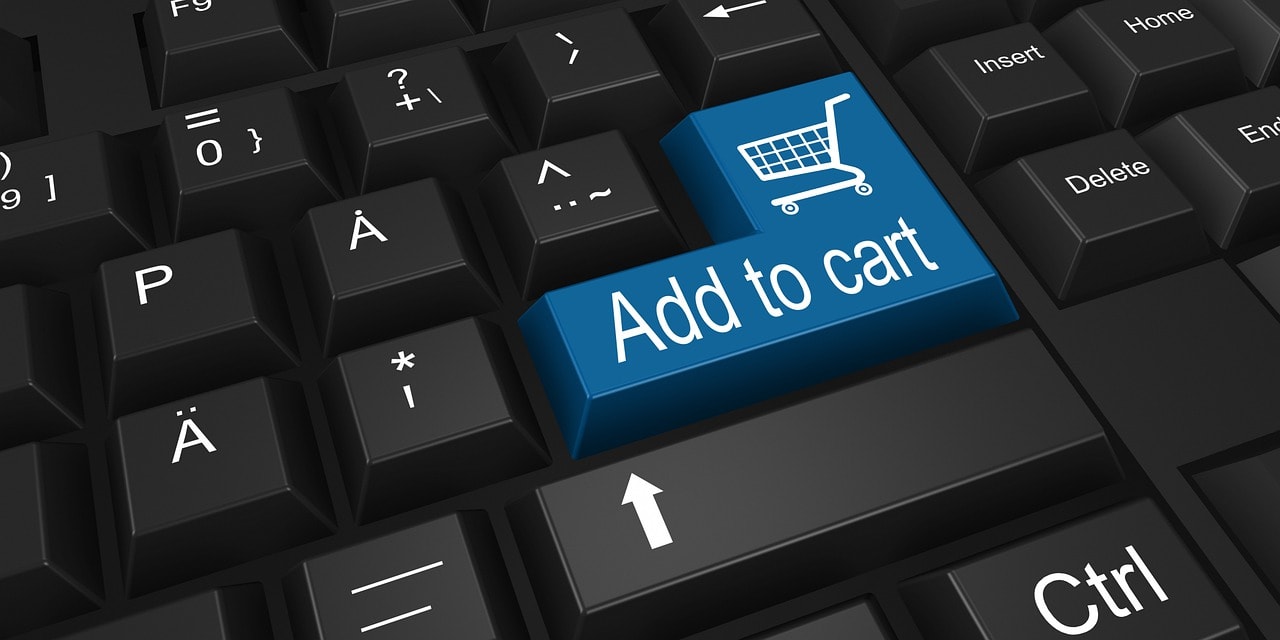The pandemic has revealed to me both the pitfalls of consumerism and my slavery to it

Like so many others, my job fell victim to COVID-19 and the economic repercussions. Soon burned out on the news, I spent a lot of time reading. I like history, suspense, mysteries, fantasy, and books about how the brain works. But my go-to when I just want to “veg out” are cozy mysteries. They are easy to pick up and put down, generally have sympathetic characters that are fun to follow, and have a satisfying ending. But there’s a problem.
First, my husband complained/teased, “All you do is sit, and read, and eat.”
I pushed back automatically. “We’re in a pandemic, after all! So what if I add a couple extra pounds?”
After I got over my defensiveness, I thought about it. Why was I always eating while reading? Yes, I grew up with food being a comfort item. Through celebrations, mourning, highs and lows, the answer was always food, and the sweeter, the better. But there was more, and I found it insidious.
You see, part of the definition of a “cozy” is that food must be a major character. Don’t believe me? Take a look. The protagonist owns or runs an inn, bakery, or restaurant — or their best friend does. The food becomes a backdrop in the least, and often a major part of the mystery, as in “How was the muffin poisoned?” Many authors are happy to list recipes in the back of the book for items referred to in the story. Now, there’s nothing wrong with this whole idea on the face of it. But, if you’re diabetic like I am, it becomes a minefield. No wonder I always had the munchies!
The toxic messages don’t stop there.
Out of self-preservation, I turned on the TV again. And I became acutely aware of how many things people were trying to sell me. With both of us out of work, we have been trying to curtail any unnecessary spending. And having been away from TV for 2-3 months, I was now sensitized to the demands of advertisers.
Like the economy car parked in front of a $1.5 million home which would be more likely to have a BMW or Land Rover. Or how about all the gadgets we are told we must have but don’t really need? From the Peloton to the bread maker, the copper pan to the quick cooker. I have an electric pressure cooker/quick cooker that I’ve never used, because my neighbor couldn’t pass up the 2 for 1 deal. (Just pay the shipping!)
Even worse, I’ve discovered, is what comes over my phone, where I do most of my browsing.

All sorts of ads were popping up everywhere and everywhen on Face Book. I also saw an increase in email from retailers I’ve dealt with, even some that I only visited once. The day I found myself — again — spending 2-1/2 hours looking at a rug for my office that was neither essential nor in the budget, I realized I had to do something.
It didn’t happen all at once. First, I went back to reading more, but concentrated on writers who didn’t spend all their characters’ time in the kitchen and dining room. I also made a point of picking apart the commercials when I was watching TV. “Why would anyone need that?” “Why would anyone want that?” Or, “That one has no logic whatsoever!” And I only check Face Book once a week or less.
Finally, I went through all my email accounts (yes, I have several) and unsubscribed from every buying-related account that I could. It’s not easy. The link is usually at the bottom of the email in fine print. The ones I like, you simply click on the link and the next page opens to confirmed you have unsubscribed. But many want to know: Are you sure? Do you want to just scale back? The worst tell you “Please allow up to 10 days for your request to be processed.”
With physical mail, I know what the delay time can be for opting out of mailings. But this is email. The same programming that gets you subscribed immediately can unsubscribe you immediately. If they wanted it to. There is really no excuse, but they want that extra week or three to convince you to buy again.
This whole process got me to thinking about consumerism in general.
We all have basic requirements to survive. Food, water, and shelter for our physical needs. Social interaction, art, and music for our emotional and intellectual needs. But consumerism takes us far from what we need to what we want. It can’t be just any old house; it has to be bigger and better than our neighbor’s or brother’s. I can’t eat just any old vegetable; it has to be non-GMO, organically and sustainably grown with a celebrity endorsement.
My car is now three years old. Don’t I want to trade up to a newer one? With better safety features and all sorts of other bells and whistles? Never mind that I’ve never been in an accident let alone a serious one. I chose this vehicle specifically because I wanted it to last a long time. But it is hard to ignore the message of “newer is better.”
Then there are the things that people invent and subsequently must create a reason for us to buy it. How many gadgets do you have sitting around gathering dust because they were outdated before you even got them, or you never even used it? Whether it’s the fancy exercise bike-cum-clothes hanger or the five-part skin regimen you never have time for, we all have things we thought we had to have but didn’t. And don’t.
Therein lies the fundamental flaw of a consumerist economy. It requires selling things to people who don’t need them by convincing them that they must have them. “You are worth the extra dollars.” “You deserve it.” “Your competitor in the office has one.” Then, when we buy into the concept, the truly important things suffer.
I grew up in a blue-collar family that teetered on the line between lower-middle class and low income for many years. Our parents went bankrupt twice in ten years trying to run their own business. Often as a child I was told, “We can’t afford that.” As an adult later, I often struggled with balancing the basics and the wants, until I, too, declared bankruptcy.
The financial bankruptcy paralleled emotional bankruptcy, and as I worked through the emotional and mental, I began to see how much it affected the money side. It was a very toxic symbiotic relationship. Thankfully, I’m not going through the struggle alone this time. Nor are we at the point of bankruptcy. But things are tight. We both struggle with need versus want.
As I’ve pondered this dynamic over the last few months, I’ve struggled with the very nature of consumerism.

For consumerism to be healthy, it must be on a foundation where everyone’s basic needs are met. But that isn’t the reality. This last year has illuminated just how close to the economic edge most of us live. Whether you are in an apartment or a five-bedroom house, deciding between food for your children or heat shouldn’t be an issue. But it has been, and it is.
I look at all the stuff we have and ask myself, “Why?” We have five TVs. My husband has a gazillion tools that never get used anymore. I have lots of keepsakes from my travels. We talk about downsizing our stuff, but not much happens in the end. We are products of our society that says we must have X, Y, and Z to be happy, or successful, or important, or worthy. It’s a hard message to counter. Emotions get wrapped up in the things and vice versa.
The call to buy — to have — is all around me. I’m conditioned to the instant gratification of buying something. I’m enslaved to a system that preys on my emotions and self-esteem to part me from my hard-earned cash, or worse, encourages me to dive into more debt “because I deserve it.”
What I really deserve is to be free from all the clamoring. To recognized that my worth comes from being me, not from what I wear or have. I believe this is the truth behind Jesus telling his disciples about the lilies in the field, that “they neither toil nor spin,” yet are clothed in such beauty. (Luke 12:27)
This is the reality I want my life based on, not some arbitrary race to have more things I don’t need. I want to be rich in friends and in faith. I want to be grounded in grace and love, not greed and envy.
What about you? Are you comfortable with your place on the consumerism spectrum? It’s fine if you are — your path is certainly not the same as mine and may be much healthier when it comes to buying and owning. But if you take a good look and find it a struggle to say no to the extras, think about it. Why do you struggle? What changes can you make?
I want to opt out. If I can. It’s not going to be easy.
Grace, Peace and Hugs to you!